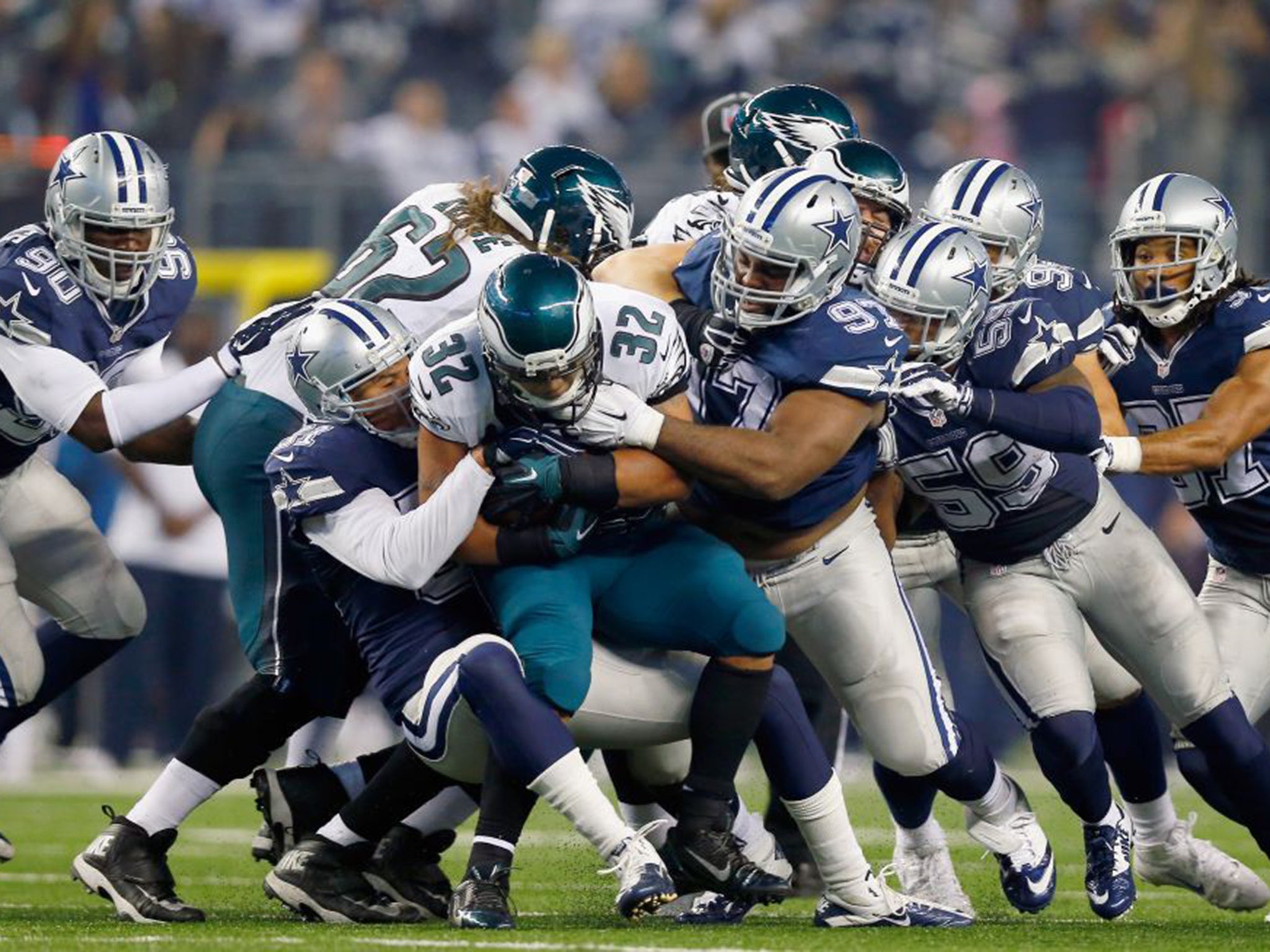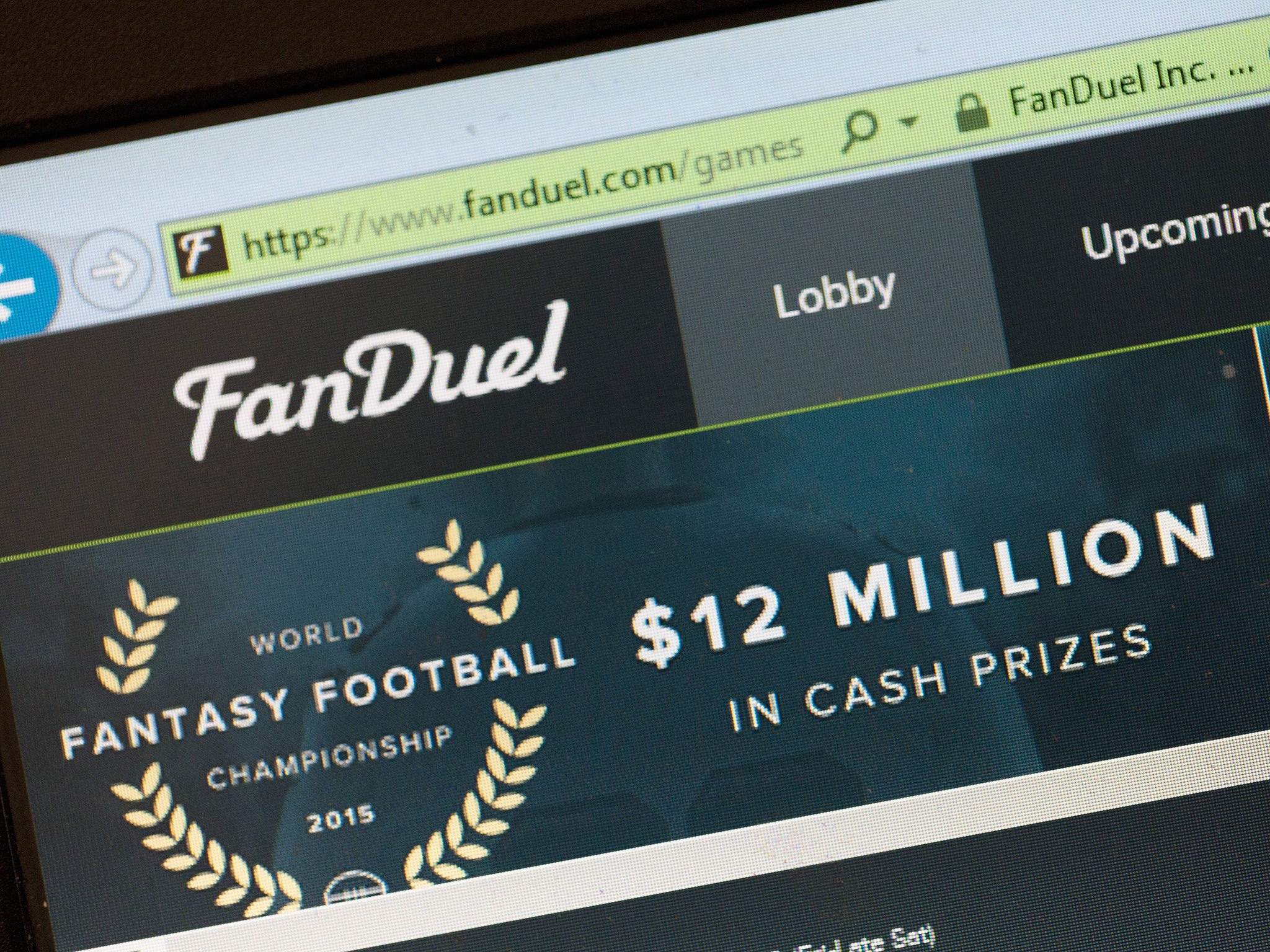Sports betting ban in most US states is odds on to end soon
Out of America: The FBI is investigating insider trading in US sports betting, in a country where it is only legal in four states


Your support helps us to tell the story
From reproductive rights to climate change to Big Tech, The Independent is on the ground when the story is developing. Whether it's investigating the financials of Elon Musk's pro-Trump PAC or producing our latest documentary, 'The A Word', which shines a light on the American women fighting for reproductive rights, we know how important it is to parse out the facts from the messaging.
At such a critical moment in US history, we need reporters on the ground. Your donation allows us to keep sending journalists to speak to both sides of the story.
The Independent is trusted by Americans across the entire political spectrum. And unlike many other quality news outlets, we choose not to lock Americans out of our reporting and analysis with paywalls. We believe quality journalism should be available to everyone, paid for by those who can afford it.
Your support makes all the difference.What’s the big difference between the average shopping street in London and Washington DC? No supermarkets, wine merchants and estate agents, you might venture. But we have all three here in abundance (though the latter two masquerade under the names of liquor stores and realtors). What’s missing are betting shops, and the reason is simple.
Astonishingly, in a land where gambling has inspired some of the finest movies ever made (The Hustler, anyone?), where every state has a lottery and casinos sprout like mushrooms, sports betting is – barring a couple of loopholes – illegal. But, one wonders, for how much longer?
First though, those loopholes. One is the exemption that allows Nevada and three other states to run sports gambling operations. You can have a flutter on your favourite baseball or basketball team in Montana, Oregon and Delaware too, but who wants to do that when there’s Vegas, baby? Come Super Bowl or World Series time, Sin City is the centre of the action.
And then there’s the booming fantasy betting industry. Basically, sports gambling here is regulated by a couple of laws. One is the 1992 Professional and Amateur Sports Protection Act, or Paspa, which is designed to safeguard the integrity of sport, and which gave Nevada and Las Vegas their exemptions. The other is a 2006 Act of Congress that essentially outlaws internet gambling – with the notable exception of fantasy sports games.
In these, you build up imaginary teams of of real players and then bet on the outcomes, which are determined by the real performances of the players you’ve chosen. The theory is that picking such teams is a matter of skill, not chance, and thus does not qualify as gambling. In fact, it is – and most doubts on that score have been dispelled by blanket “get the buzz” advertising accompanying this season’s NFL games and the current baseball playoffs, stressing the huge daily prizes on offer, of $2m (£1.3m) or more.
Fantasy sports is on a roll; its revenues of $3bn annually are projected to quadruple over the next five years. But if you’re not partial to Las Vegas or find fantasy sport too tame, the alternative is illegal betting via dodgy offshore sites accessible from the US, or old-fashioned illegal bookies. Millions of Americans indulge. Exactly how much they spend is by definition unknowable: illicit operations don’t file earnings reports, or have dealings with the taxman. The figure surely runs into the tens – some guess hundreds – of billions of dollars, eclipsing the legitimate business in Nevada.
One thing is sure. The 2006 law has been an abject failure. Even the nimblest legislative bodies struggle to keep up with the internet’s sleight-of-hand, let alone America’s dysfunctional Congress. Offshore betting proliferates, and now the unregulated, anything goes world of fantasy sports betting is running into big trouble too.

The industry – for so it must now be described – is dominated by two websites: FanDuel and DraftKings in which, it should be noted, both major league basketball and baseball have financial stakes. DraftKings, moreover, has been given a licence to operate in Britain. Earlier this month, it emerged that one of its employees had accidentally released information about team line-ups – crucial to success in fantasy sports betting – and then proceeded to make a $350,000 killing at the rival FanDuel site. A whiff of insider trading is in the air, and a clutch of state attorneys is on the case, joined last week by the FBI. The upshot will surely be new regulation at the very least, conceivably even a shut down.
But why stop there: why not legalise sports betting on a federal, not state-by-state, basis? The reasoning is simple, much the same it was for the abolition of prohibition more than 80 years ago. People are going to gamble, just as they’re going to drink. Accept that reality, and you have some hope of controlling these vices, and combatting the worst side-effects such as addiction and crime, while bringing in new revenues for impecunious state governments.
Naturally, many will object, claiming that legalising gambling will merely spread the plague and its attendant evils. Bill Bradley, the former basketball superstar, US senator, Democratic presidential candidate and a prime author of Paspa, once declared: “When I was a player, I certainly didn’t like the idea of being a roulette chip.”
We all know as fans that if you have... a $5 bet with your friend on a game, all of a sudden you’re a lot more interested
The official aversion to sports gambling on this side of the Atlantic has many parts, not least that residue of ancestral Puritanism in the collective American soul. Above all, however, there’s not-too-distant history. The elephant in the room in any discussion of the subject is baseball’s thrown World Series of 1919, when players from the heavily favoured Chicago White Sox took bribes from a New York gambling syndicate to lose games.
That affair, incidentally, also led to a movie classic, Eight Men Out. But its main practical consequence has been the sign posted, to this day, in every major league baseball dressing room, warning players that the slightest involvement with gambling will bring an automatic, lifelong ban from the game. Steroids, anyone?
No one wants a repetition of 1919 – nor is one likely when today’s baseball stars can make $25m a season. But the biggest sign of impending change came last November when none other than Adam Silver, commissioner of the National Basketball Association, wrote an editorial in The New York Times urging that sports betting “be brought out of the underground and into the sunlight where it can be appropriately monitored and regulated”.
What other major sports bosses are on board for legalisation is as yet unclear. But the icefloes are moving. Even more to the point is another Silver dictum, that “We all know as fans that if you have… a $5 bet with your friend on a game, all of a sudden you’re a lot more interested.”
Even Puritans can agree with that.
Join our commenting forum
Join thought-provoking conversations, follow other Independent readers and see their replies
Comments